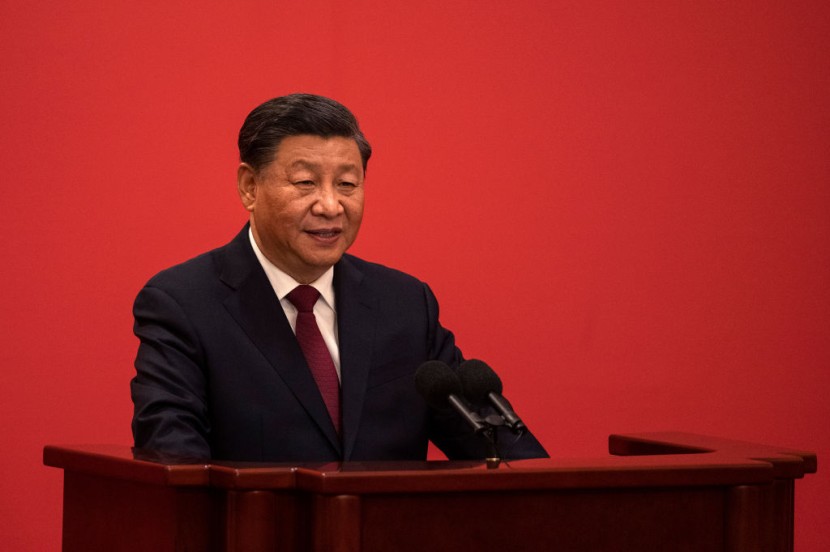
Keywords: China, Xi Jinping, China COVID-19 protests, China protests
Summary: Chinese President Xi Jinping stated in his initial response to the unprecedented mass protests against his strict zero-COVID policy that protesters were led by "mainly students" who were "frustrated" after three years of the pandemic.
According to a European Union official, Chinese President Xi Jinping has acknowledged the outrage in his country over the government's relentless zero-COVID policy.
Xi Jinping acknowledged that the COVID-19 lockdowns are "frustrating" the Chinese people and indicated that restrictions should be relaxed because the Omicron variant is less dangerous.
Xi Jinping Turns the 'Pressure Down'
A senior officials who spoke on the condition of anonymity said that the Chinese President stated during private discussions with EU chief Charles Michel in Beijing that the emergence of Omicron may allow China to relax its zero-COVID policies.
With cities across the nation permitting businesses to reopen, the need for daily PCR testing eliminated, and some COVID-19 patients permitted to quarantine at home, China has already started to relax some restrictions.
Last weekend, protesters took to the streets to voice their displeasure with China's strict reaction to the pandemic, with some demanding the resignation of Xi Jinping and his administration. China's massive security apparatus has moved quickly to quell the unrest, increasing web restriction and population surveillance while increasing police presence, according to Telegraph.
The officials claimed that President Xi Jinping informed Michel that the protestors were "primarily students or teens at universities" who were tired of the restrictions. Since the Tiananmen Square protests in 1989, the protests have evolved into the greatest direct challenge to the Chinese Communist Party in power. However, the government has mainly kept silent about them.
For the benefit of the nation's "colorful youth," Hu Xijin, a former editor of China's Global Times newspaper and a Communist Party mouthpiece, declared on Friday that he was willing to tolerate the risks posed by Omicron.
It came after Vice Premier Sun Chunlan stated that the Omicron variant was weakening and vaccination rates were increasing. It was a further indication that views toward controlling the virus have changed among the Chinese political elite. Sun, a key player in Beijing's pandemic response, stated on Wednesday that "new responsibilities" were necessary due to China's "new situation."
Pero CNN, China has had sporadic protests recently as it nears the conclusion of a third year of strict restrictions on civilian life. Since the 1989 pro-democracy uprising in Tiananmen Square, the most recent wave of protests has never been seen.
The Communist Party has tightened its hold on all facets of life since Xi took office in 2012, launched a massive crackdown on opposition, and created a high-tech surveillance state.
Read Also : North Korea Orders Parents To Give Children Patriotic Names Related to Weapons, Missiles
China Eases Zero-COVID Policy
In response to large anti-lockdown demonstrations around the nation, several regions in China are indicating they may relax some COVID-19 restrictions, including releasing lockdowns and allowing some COVID-19 patients to quarantine at home, at the time of Xi Jinping's remarks.
Foreign diplomats have taken notice of Beijing's change of position on pandemic restrictions. Wendy Sherman, the deputy secretary of state for the United States, claimed on Friday that the massive demonstrations in China "had an effect" on the COVID-19 rules.
Speaking at a gathering at American University, Sherman observed that the protests had subsided and said that part of the reason for this was that "they actually had an effect," giving the example of China allowing people to stay in their homes during a quarantine.
Hospitals are not to send away patients if they cannot present a negative PCR test from within the preceding 48 hours, according to a request from Beijing city officials. They can instead undergo a brief antigen test, as per SCMP via MSN.
Inpatients and their carers must still produce their results even if children under the age of three are exempt from PCR tests and instead have their caregivers' results examined.
The capital stopped requiring periodic PCR testing for persons who do not regularly deal with others, such as the elderly, young children, and people who stay at home for work and school, in order to ensure that no one is refused access to healthcare. The new measures were announced on Thursday.
However, Xi Jinping hinted that foreigners living in the nation will be permitted to take the BioNTech/Pfizer vaccine during a meeting with German Chancellor Olaf Scholz last month. China has yet to license the use of Western vaccines for the general public.
Related Article: China Protests: Demonstrator Urging To Oust Xi Jinping Mysteriously Gone After Police Arrested Him
@YouTube
© 2025 HNGN, All rights reserved. Do not reproduce without permission.








